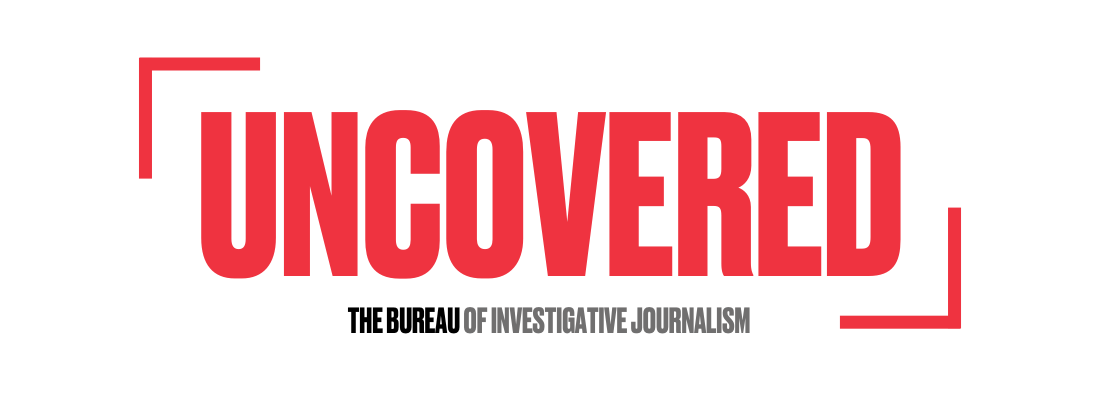
“You have to be a professional bastard: that’s your job.”
Hi {{ First name | there }},
This week we dug into some of the staggering details about Carter-Ruck’s work for one of the biggest crypto scams in history. I’ll get into more of the background to that story and why it’s so important further down.
But first I want to tell you about some of our team going on a mission to one of the places notorious for dirty money: the Channel Islands. These islands off the coast of Normandy have a curious relationship with the UK. They’re Crown Dependencies, but independent – their foreign affairs are governed by the UK, but not their local laws.
It’s not our first visit. Five years ago, not long after I joined TBIJ, I went to Jersey myself, investigating a giant operation facilitating tax fraud for the rich and famous. I wandered through the sprawling grounds of the family home where it all happened: a white house not dissimilar to the more famous one in Washington DC. The garden was dotted with faux Roman busts and boasted a squash court that had doubled as a store room for the boxes and boxes of records detailing all of the operation’s crooked schemes.
The Channel Islands and the Isle of Man are the second-biggest source of foreign direct investment in the UK, even though they have a combined population of about 250,000. It’s hard not to wonder how much of that is dirty money.
Eleanor Rose, the TBIJ editor in charge of exposing wrongdoing in the City of London, is from Guernsey. This week she and her team travelled there to talk to senior figures in the financial services industry about corruption, in the hope of making it harder for companies to evade scrutiny.
We’ve found that plenty of people are willing to listen if the conversation is genuine and open. Bringing about change often means engaging with people who are entrenched in the system, but want to use their professional skills for good.
Eleanor’s written before about how being from Guernsey has motivated her in her work to expose corruption. She wants the island to clean up its act, but understands why finger-wagging from mainland Brits rankles with locals.
These are small, tight-knit communities. Eleanor drew strength from the fact the oak beams in the hotel where the round table was held had been put in place by a local joiner she knew well – her dad. “So at the very least, I knew the roof wasn't going to fall in on us,” she told me.
At the meeting, the team talked to a cross-section of local regulators, businesspeople, lawyers, journalists and politicians to try to find common ground.
The key issue is the relative lack of transparent information about who owns a Channel Islands company. Not knowing that enables so much kleptocracy, organised crime and fraud. And while Westminster has been talking tough, Guernsey has been dragging its feet.
The team presented our investigation on a Guernsey wealth manager who managed millions on behalf of Rifaat Al Assad, the uncle of Bashar Al Assad and an alleged war criminal and money launderer.
This is how we take our journalism off the page and into the world. We make sure it lands with the people who can actually make change happen. It’s not an instant fix – making progress on this will take time. But we can’t, and won’t, just wag our fingers from mainland Britain.
Factchecked!
Each week we reveal a fascinating fact from our reporting…
Did you know?
The information that someone is expecting a baby is worth up to 200 times more to advertisers than data about their age or location.
Find out more
Health data is especially valuable in the UK and Europe, where data protection law guards it more strictly than other types of demographic data. But period tracking apps also provide a way around data protection laws because users consent to tracking – often without understanding the full scope of data sharing.
A California jury found that Meta, the parent company of Facebook and Instagram, had illegally collected reproductive health information from millions of women who use the fertility tracking app Flo Health. The data had been passed on to the tech giant without the users’ knowledge or consent – and despite repeated promises that it was private.
Read more here.
Carter-Ruck and the cryptoqueen: what we know now
The crooks who had hired Carter-Ruck also had a Guernsey connection. According to reporting from the BBC, Ruja Ignatova, who ran the OneCoin crypto fraud, used companies registered in Guernsey to buy two properties in London. Ignatova is now on the FBI’s top ten most-wanted list and is still evading justice. You might remember her from the podcast and subsequent book, The Missing Cryptoqueen.
Carter-Ruck lawyer Claire Gill is now being prosecuted for an allegedly “improper” legal threat to a whistleblower who were trying to warn consumers like you and me about the OneCoin fraud. Gill and Carter-Ruck argue she was just fulfilling her professional obligations as a lawyer. We’ll see what the Solicitors Disciplinary Tribunal decides.
How this came about is important. The regulator was investigating Carter-Ruck already, but it was only after our investigation came out that it took any action. We published that piece with The Economist’s 1843 magazine back in 2023 and it immediately became the definitive piece about the UK’s libel industry.
In it our reporter Ed Siddons and Matthew Valencia wrote chillingly:
It is not just British journalists who have reason to fear Carter-Ruck and its competitors. In recent years British libel lawyers have expanded their target range to include bloggers, booksellers, social-media users, whistleblowers and even government regulators. Being in another country offers little protection. [..] If you have ever spoken out against one of the global super-rich with some link to Britain you are potentially in a London libel lawyer’s crosshairs, no matter how few followers you have or where you live.
After we published, we worked with our friend Dan Niedle, a senior tax lawyer. Niedle left his flashy corporate job to put his skills towards doing some good and set up a group called Tax Policy Associates. The group took our material and built on it, filing a meaty dossier with the solicitors regulator. Taken together, it was too much to ignore.
Reading the latest reporting on the tribunal case, even I was shocked to learn how Carter-Ruck was supporting OneCoin’s efforts to throw doubt on an active police investigation into the scam.
In December 2016, Gill wrote an email to other lawyers working for OneCoin, saying: “The short advice is that we cannot necessarily stop the police taking these actions during an investigation, but we need to complain about it and give [the City of London Police] cause to doubt their investigation and to force them to question if they are on the right track.” [Emphasis ours.]
It reminded me of something Ed and Matthew wrote in their piece describing the “distinctively aggressive approach to libel litigation in Britain”:
One former Carter-Ruck employee says that the main objective in many of the cases they worked on was simply “to muddy the waters and cast doubt on particular allegations”, even if there might be some substance to them. (Carter-Ruck said this description was “as absurd as it is false”.) Another ex-employee put it more succinctly: “You have to be a professional bastard: that’s your job.”
It’s far too early to draw definitive conclusions about whether Gill and Carter-Ruck broke any rules; that’s what the eventual hearing will determine. But it’s good to see that our reporting has helped trigger proper scrutiny. Only with this kind of accountability can we protect freedom of speech – and protect all of us from fraudsters.
Finally, some exciting news from us: Our family courts reporter Hannah Summers has been shortlisted in the Journalist of the Year and, alongside freelance journalist Louise Tickle, Campaign of the Year at this year’s Media Freedom Awards. She’s the only finalist in her categories who isn’t from a mainstream news organisation – a nice win for a pesky non-profit focussed on journalism that can change the world. It’s huge recognition for a team like ours.
And what an impact Hannah’s reporting has had. She had tirelessly told the stories of victims of domestic abuse and sexual harassment battling to keep their children from their abusive other parent. And she has exposed clear and worrying problems in how our family courts operate – including the dangerous beliefs of some of the people who give evidence in very difficult cases.
When Hannah joined us, she was the first full time family court reporter in the UK. We find the spaces that no one else is covering and pioneer new ways of working with people who have perhaps never had journalism on their side.
If you’d like to support this kind of reporting, please join us and become an Insider. Our members get to hear even more about what’s going on in the newsroom, and they also give us the confidence to take on new topics, face down legal giants, and build real change.
What we’ve been reading
🔴 This beautifully told story on how people are tricked, trafficked via Thailand and then forced to work in scam factories run by Chinese criminal gangs reuters.com
🔴 Our friends at Lighthouse have dug into how a billionaire’s money turned Tony Blair’s think-tank into a lobby group for his tech company lighthousereports.com
🔴 This is a rare look inside the hotels used to house asylum seekers, including details of children who have spent nearly their whole lives in the system bbc.co.uk
Thanks,
Franz
Franz Wild
CEO & Editor-in-Chief

ADVERTISEMENT
Join over 4 million Americans who start their day with 1440 – your daily digest for unbiased, fact-centric news. From politics to sports, we cover it all by analyzing over 100 sources. Our concise, 5-minute read lands in your inbox each morning at no cost. Experience news without the noise; let 1440 help you make up your own mind. Sign up now and invite your friends and family to be part of the informed.




